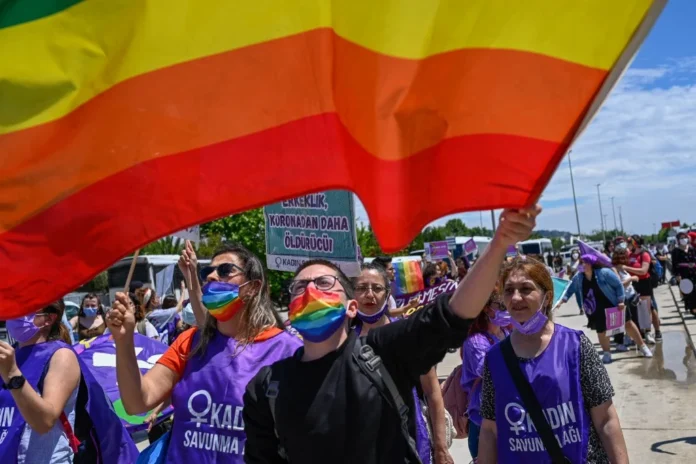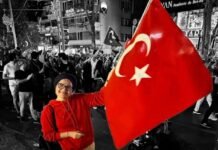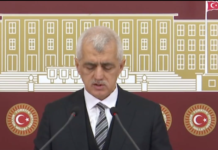Amnesty International on Thursday called on the Turkish government to withdraw a draft law that would introduce prison sentences for LGBTI people and their supporters.
The organization says the proposals mark an unprecedented escalation in efforts to restrict LGBTI rights and could set a dangerous precedent for criminalizing identity and advocacy.
“These proposals present a grave threat to the rights of LGBTI people and those who advocate for LGBTI rights and they must never see the light of day,” Dinushika Dissanayake, Amnesty’s deputy director for Europe, said.
The proposal, known as the 11th Judicial Package, would amend Article 225 of the Turkish Penal Code, which currently covers public indecency. Under the draft, anyone who “acts against their biological sex” or “encourages or praises such behavior” could face between one and three years in prison. Another article would criminalize engagement or marriage ceremonies between same-sex couples, carrying sentences of up to four years. The maximum penalty for sexual acts performed in public would also increase from one year to three.
The legislation could also affect digital and broadcast media, including streaming platforms that feature same-sex relationships in films or series. Such content could be prosecuted for “encouraging behavior contrary to public morals,” according to the bill’s wording.
In its justification the government said the measures are intended to protect the “institution of the family” and ensure “the upbringing of physically and mentally healthy generations.” Officials have framed the reforms as part of a broader effort to counter what they describe as “gender-neutrality movements” and to strengthen “moral and social values.”
“For the first time in the history of the Turkish Republic, legislators could be considering the criminalization of any expression of LGBTI identities, consensual same-sex sexual activity, and access to vital gender-affirming healthcare,” Dissanayake said.
Amnesty said the measures, framed as protecting “public morality” and the “family institution,” would violate Turkey’s international human rights obligations and represent a major rollback in legal protections.
This is the third such proposal in the past year targeting LGBTI rights. Two earlier drafts were never brought before parliament’s Justice Committee for debate.
The draft also introduces new restrictions on gender reassignment procedures. The minimum age would rise from 18 to 25, and applicants would be required to be unmarried and obtain a medical board report from a health ministry-approved hospital confirming that the procedure is medically necessary for reasons of mental health. The report could only be issued after four evaluations conducted at least three months apart.
Unauthorized gender reassignment surgeries would be punishable by three to seven years in prison and heavy fines for medical professionals who perform them outside the legal framework.
Turkey’s ruling Justice and Development Party (AKP) has increasingly portrayed LGBT visibility as a threat to public morality and family values. Pride marches have been banned in major cities for years, and officials frequently describe LGBTI advocacy as an attack on traditional norms. If enacted, the 11th Judicial Package would represent one of the most restrictive legal measures targeting LGBTI individuals in Turkey in recent decades.
Homosexuality is not illegal in Turkey, but homophobia is widespread. It is common for Turkish President Recep Tayyip Erdoğan and other politicians from his party to attack LGBTI individuals and accuse them of perversion and ruining family values.
Meanwhile, Turkey was ranked 47th among 49 countries as regards the human rights of LGBTI people in the 2025 edition of the Rainbow Index released in May by the International Lesbian, Gay, Bisexual, Trans and Intersex Association (ILGA), which placed Turkey among the bottom five countries for LGBTI rights in Europe.















